Inspired by the likes of Van Morrison and Janis Joplin, the Australian singer-songwriter has stripped things back and started afresh
To run through some of the achievements earned by Australian pop star Gabriella Cilmi while she was still a teenager is to complete many people’s musical bucket lists. Signed to Island Records and working with the powerhouse production team Xenomania, her debut album was a hit all around the world. Propelled by the smash single Sweet About Me (the most-played song in the UK in 2009), Cilmi went on to earn nominations at the Brits and Q Awards, and picked up a hatful of ARIA Music Awards.
Yet something didn’t sit well with Cilmi and after the release of her second album, she split from both her label and management company. Her dreams of being on the cover of Rolling Stone no longer seemed compatible with their desire to make her lad mag fodder. You could say that, starting with her 2013 record The Sting, the rest of this decade has been one of creative rehabilitation.
Cilmi’s new EP suggests that she may well now be out the other side – ready to blossom into the classic singer-songwriter that she always wanted to be, and one that we were keen to chat to…
What have you been up to since making The Sting?
“The Sting was my first go at doing something independently. It had come after I’d left a major label and management and was starting from fresh again. I’d been in the same situation since I was 13 so it was all really new territory for me, but it was exciting. I got to really navigate the whole project, alongside my producer Eliot James and other people I worked with.
“After that release it was again about starting fresh, that came at a time when things like Spotify were coming out. All those tools that are really great for independent artists to have had just started to bubble up. It was about getting used to that side of things and it was really refreshing to start something from scratch and make music with my friends.
What happened next?
“Then it was about working things out. Being independent was a little bit tricky, doing it on my own, so I was thinking, ‘Maybe I do need a little bit of help.’ When you come from being so young and having a lot of other people telling you what to do, you want to do it all for yourself. But you then realise that you need some guidance. So I was thinking, ‘What am I gonna do next?’
“I tried lots of different things, different projects, spending time to get the production right and everything. Thinking, ‘Maybe I should do this/ maybe I should do that.’ It wasn’t until I really started to strip things back to basics and return to songwriting, with an acoustic or a piano, that something clicked and there was a path.”
Have you always been interested in songwriting?
“Yeah. I used to write songs when I was young, just for fun. Even when I started I was involved in the songwriting. We had about two years when my first album was in the works. As crazy as Brian Higgins of Xenomania was, who worked on the first record, he was there to teach me and made me work pretty hard, especially as a 15-year-old.
“I was mainly involved in the topline; lyrics and writing melodies. The way we would work back then was more similar to writing hip hop. We worked with a loop and I wrote loads of melodies over it and then we’d string things together. So I write a lot of The Sting that way too. A friend sent me a guitar loop and I would write like that.
“Then there was a realisation that a lot of the music that I love wasn’t written like that. It was written in a way that was stripped down and humble; just starting with a guitar and vocal, building it up like that. I really love playing live, that’s my favourite thing. I really wanted songs that you could play anywhere.”
Can you give us some examples of the type of music which inspired that realisation?
“Definitely, all of Van Morrison’s Astral Weeks was like that. I also really love spontaneity. I’m guessing that he had the songs written before but then, when you get into a room with a bunch of musicians, you can create something relatively quickly which has that special magic that you can only capture in the moment. You can’t get that when recording in a pristine studio – which is an art in itself.
“I always found that environment quite strange, so it’s a relief to be able to strip things back. I also started listening to a lot of Americana, like Gram Parsons and Emmylou Harris, and was introduced to that world.”
At what point did you start writing the songs for the new EP?
“I wrote most of the songs with my brother. We were having a chat with a mate of ours, another writer called Howey Payne, and he was like, ‘Do you realise that all the music that you love has none of this fancy production, it’s all stripped back,’ so we started just writing songs.
“The piece of modern technology that we did use was a mobile phone, for recording ideas. Stream of consciousness stuff, guitar and maybe a piano, and coming up with loads of ideas that way. Then we would go back and work on the ones that were best and finish them off. That’s how we started and it was about two years ago.”
So you’ve been taking your time to get it right?
“Yeah, taking time to get it right and building up a bunch of songs and finding someone to work with and record this type of record. Eliot [James] worked with me on The Sting and was really up for doing something that was drastically less faffy in and back to basics. Between the three of us, we have written and recorded everything. We all played instruments that we don’t normally play and tried different things.”
Have you always had a creative partnership with your brother and what’s that dynamic like?
“We’re Italian so like to keep everything in the family! At first, there was some door-slamming and that kind of thing, but we’ve now fallen into a really good rhythm and complement each other. He comes from a guitarist background and I’m more of a singer/topliner but we swap roles all the time. We push each other to get better and be the best that we can, whereas someone else in the studio who doesn’t know you so well might not want to hurt your feelings by saying something.”
Similarly, what is your relationship with Eliot like?
“He is one of those people, whether he realises it or not, who is a natural on every single instrument. I don’t think I’ve ever worked with anyone else like that. He’ll go from piano to guitar to harmonica. I fancy myself as a bit of a harmonica player but he sounds like he’s been playing since he was two. He’s got this natural connection with things and is a great musician. He really helped us shape the songs. We had a vision but the songs were still only skeletons and he helped us put everything together.”
And why did you decide to create an EP rather than an album?
“Well eventually we want to do a full album but we just decided to try and put out an EP first and see what happens. The project is out on Kin Records which is Eliot’s own label, so it’s a new venture for him as well as for me. It’s kind of independent but also nice to be doing things with someone you trust and someone whose work you admire.”
Putting something out in this way is very different to having a big label behind you, how does that alter your expectations?
“We won’t have the major marketing push that you might have on a major label, so it’s a bit different. But I think these days everyone has to manage their expectations. Even back in 2008 people were starting to complain about how music wasn’t the same any more. I don’t think there are that many overnight successes now, it’s something that you have to build. That’s the way I look at it.
“This is the first EP and the first track of a new project and it’s about building that project. It might not be, ‘Bang,’ an overnight success, but it’s something that I want to grow and will hopefully find an audience who love it.”
Do you feel more exposed with this stripped-back style of music?
“I guess so. It’s funny, even doing things like a vocal take for instance… most of the tape just had one take, which is what I wanted to go for. I’ve gone to a place of capturing the moment and then letting it go. It’s the same with the lyrics, a lot of the stuff is personal but I think it just comes with the territory. I try not to think about that side of things and just let them go”.
Are there lessons you learned from your Xenomania days that you still use in your songwriting?
“Definitely. I think there’s something to be said for doing things stream of consciousness, which is what they taught. When we would write melody after melody, that was all stream of consciousness; initially not thinking too much about what the song was about, just getting out what’s inside of you, brewing somewhere. They also taught me about the importance of a good melody. I think that is important in all songwriting, but there is more to it than just melody, it also has to make you feel something.”
You mentioned making notes on your phones, do you also record melodies when they come to you?
“I’ve stopped doing that as much. It depends, if I’m sitting with my band and have a guitar with me I’ll probably put it down, but then I become obsessed. I used to put too many melodies on my phone and it would get clogged up and I wouldn’t end up using any of them. But I do still do it sometimes, especially if I think something is particularly good. But I used to it a lot more because I was scared that another idea wouldn’t come. I’ve learnt that ideas do come, you’ve just got to be patient.”
Is there a specific environment you prefer to write in?
“I seem to write better in the winter months. That’s not really a specific place, but if it’s gloomy outside it helps me with writing. I do like sitting in the sun and writing lyrics but I seem to do my best work when it’s dark outside. That’s probably why living in London has been helpful, as opposed to Australia.
“I don’t like to work in traditional studio settings because they sometimes have this weird smell. That’s why I love working at Eastcote Studios where we recorded the EP. It still retains an old-school feeling. It’s been renovated but not to the point where you feel claustrophobic and everything is a bit too new.”
What’s does a modern studio smell like?
“You know when you open a new computer or new equipment? That smell puts me off and I think that environment is a bit intimidating. I’ve been in situations, like writing sessions, when I’ve been in a fancy studio and it makes me feel nervous.”
Is that also why you like to use old analogue equipment?
“Yeah as much as possible, although it can get a bit pricey. My brother has just bought a tape machine which has had a few moments where it stopped working. But I think I feel more at home with equipment that is a bit unreliable and temperamental, they seem to have more character.”
Earlier you said that you enjoy writing on instruments that you’re not used to playing…
“When we were in the studio we were all playing different things. My brother was playing slide guitar and I was playing harmonica and we were all playing things we weren’t so good at but it spurred us on to new interesting sounds. Even though I’m a piano player who is used to getting on a piano and writing a song there’s something to changing it up. Simplicity really works with songwriting.”
Are there any other songwriting tips that you can share with our readers?
“It wasn’t me who said this, so I cannot take credit for this… But when you’re stuck on a lyric you have to step away from it. Let your mind go blank and don’t think about it. Don’t get bogged down if something isn’t coming together as quickly as you want it to. The more you do that the more the song just comes apart; it’s good to walk away and then come back to it. That works for me. And make your space nice as well; light a candle, have a nice scent in the room.”
Did you have a theme in mind going into the EP, or did one reveal itself to you?
“I don’t know if there was a theme as such. The idea was to record things as spontaneously as possible without getting bogged down in a vocal take, or in the lyrics. With this EP especially, all that stuff has been thrown out the window and it’s about capturing the moment, which I suppose is the theme of the EP. That relates to the lyrics too, it’s about dealing with things and letting them go.”
And do you think you’re now making the music that you always wanted to make?
“Yeah, I definitely feel at home within the music I’m making now and intend to continue it and build on what I’ve done. The sound and everything. When I think about when I was a kid, all the people I looked up to like Janis Joplin, I always loved that kind of vibe and I think I’m a bit closer to how I should be and what I should be.”
Interview: Duncan Haskell




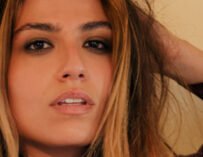
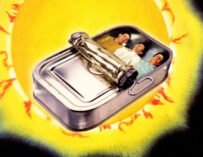
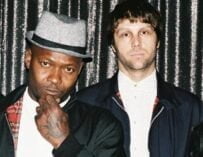
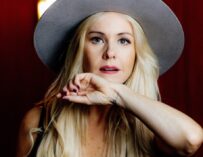


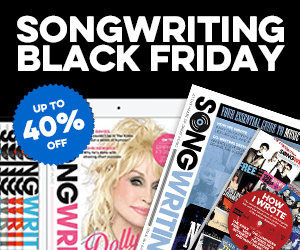

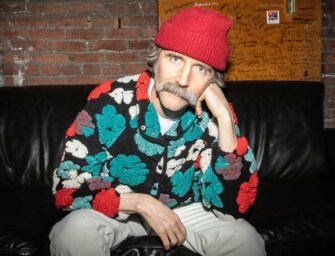
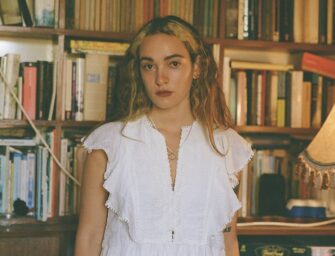
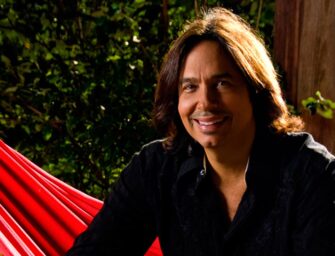
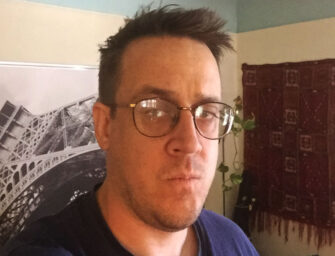























Related Articles